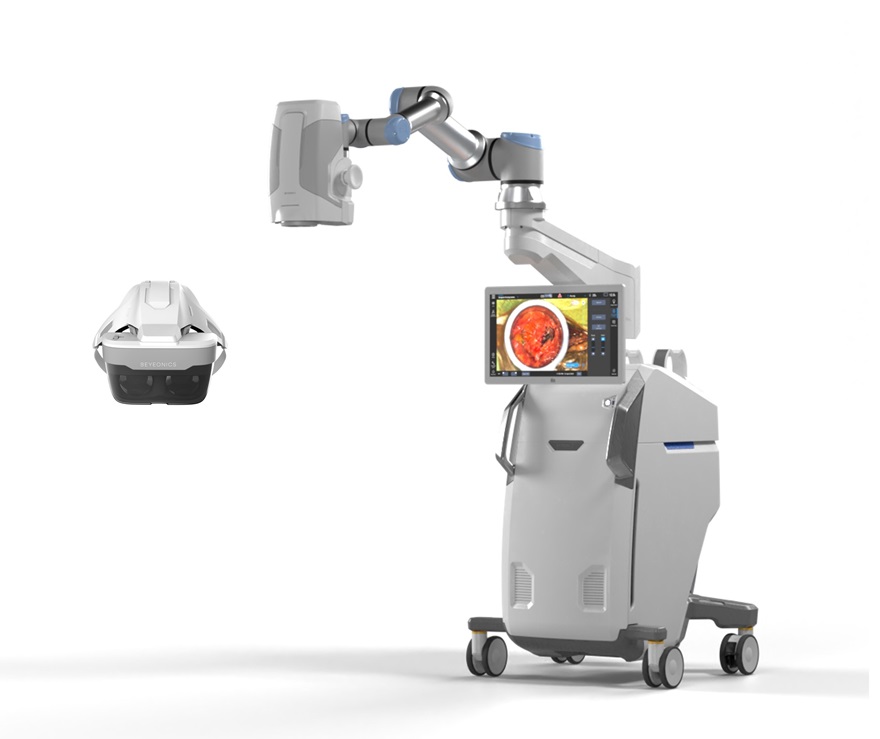Eli Lilly Begins Phase 3 Trial of Human Antibody LY-CoV555 for Prevention of COVID-19
|
By HospiMedica International staff writers Posted on 04 Aug 2020 |
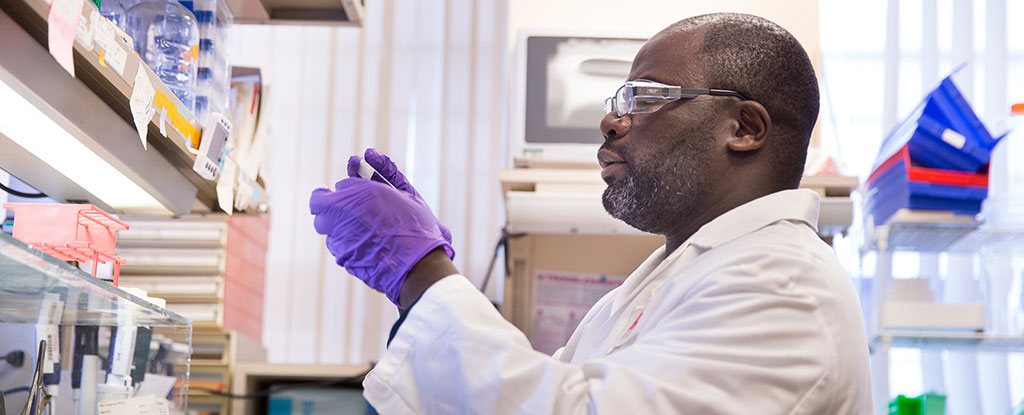
Image: Eli Lilly Begins Phase 3 Trial of Human Antibody LY-CoV555 for Prevention of COVID-19 (Photo courtesy of Eli Lilly and Company)
Eli Lilly and Company (Indianapolis, Ind, USA) has initiated BLAZE-2, a Phase 3 trial studying LY-CoV555 for the prevention of SARS-CoV-2 infection and COVID-19 in residents and staff at long-term care facilities in the US.
LY-CoV555, the lead antibody from Lilly's collaboration with AbCellera Biologics Inc. (Vancouver, Canada), is a potent, neutralizing IgG1 monoclonal antibody (mAb) directed against the spike protein of SARS-CoV-2. It is designed to block viral attachment and entry into human cells, thus neutralizing the virus, potentially preventing and treating COVID-19. LY-CoV555 was identified from a blood sample taken from one of the first US patients who recovered from COVID-19. Lilly has successfully completed dosing of LY-CoV555 in a Phase 1 study of hospitalized patients with COVID-19 (NCT04411628) and long-term follow-up is ongoing. BLAZE-1, a Phase 2 study in people recently diagnosed with COVID-19 in the ambulatory setting (NCT04427501), is ongoing.
The Lilly-sponsored BLAZE-2 study is a first-of-its-kind COVID-19 trial and is being conducted in partnership with the National Institute of Allergy and Infectious Diseases (NIAID), part of the National Institutes of Health (NIH), along with the COVID-19 Prevention Network (CoVPN) and several long-term care facility networks across the US. The study will enroll residents and staff who live or work at facilities that have had a recently diagnosed case of COVID-19 and who are now at a high risk of exposure. It will evaluate the efficacy and safety of LY-CoV555 for the prevention of SARS-CoV-2 infection and COVID-19, testing whether a single dose of LY-CoV555 reduces the rate of SARS-CoV-2 infection through four weeks, as well as complications of COVID-19 through eight weeks. The study is expected to enroll up to 2,400 participants. The rapid spread of SARS-CoV-2 among residents of long-term care facilities combined with the higher mortality rate for the elderly creates the urgent need for therapies to prevent COVID-19 in this vulnerable population.
To address the challenging aspects of running a clinical trial in a long-term care facility during a pandemic, Lilly created customized mobile research units to support the on-site study. These units include a custom retrofitted recreational vehicle (RV) to support mobile labs and clinical trial material preparation, along with a trailer truck that will deliver all clinical trial supplies needed to create an on-site infusion clinic. To further minimize the burden on these facilities that normally do not conduct clinical trials, additional staff will be at the facilities to assist with the operations of the study. Lilly will deploy its mobile research unit fleet in response to outbreaks of the virus at long-term care facilities across the US.
"COVID-19 has had a devastating impact on nursing home residents. We're working as fast as we can to create medicines that might stop the spread of the virus to these vulnerable individuals. While it's not easy to conduct clinical trials in this setting, we're taking on the challenge in an effort to help those who need us the most," said Daniel Skovronsky, M.D., Ph.D., Lilly's chief scientific officer and president of Lilly Research Laboratories.
"The mission of the COVID-19 Prevention Network is to conduct Phase 3 vaccine and monoclonal antibody efficacy studies for the prevention of COVID-19," said Myron Cohen, M.D., director of UNC's Institute for Global Health and Infectious Diseases and a CoVPN leader. "We're excited to partner with Lilly to determine whether LY-CoV555 can prevent or mitigate progression of COVID-19 infection in this vulnerable population that has been greatly impacted by this virus."
Related Links:
Eli Lilly and Company
AbCellera Biologics Inc.
LY-CoV555, the lead antibody from Lilly's collaboration with AbCellera Biologics Inc. (Vancouver, Canada), is a potent, neutralizing IgG1 monoclonal antibody (mAb) directed against the spike protein of SARS-CoV-2. It is designed to block viral attachment and entry into human cells, thus neutralizing the virus, potentially preventing and treating COVID-19. LY-CoV555 was identified from a blood sample taken from one of the first US patients who recovered from COVID-19. Lilly has successfully completed dosing of LY-CoV555 in a Phase 1 study of hospitalized patients with COVID-19 (NCT04411628) and long-term follow-up is ongoing. BLAZE-1, a Phase 2 study in people recently diagnosed with COVID-19 in the ambulatory setting (NCT04427501), is ongoing.
The Lilly-sponsored BLAZE-2 study is a first-of-its-kind COVID-19 trial and is being conducted in partnership with the National Institute of Allergy and Infectious Diseases (NIAID), part of the National Institutes of Health (NIH), along with the COVID-19 Prevention Network (CoVPN) and several long-term care facility networks across the US. The study will enroll residents and staff who live or work at facilities that have had a recently diagnosed case of COVID-19 and who are now at a high risk of exposure. It will evaluate the efficacy and safety of LY-CoV555 for the prevention of SARS-CoV-2 infection and COVID-19, testing whether a single dose of LY-CoV555 reduces the rate of SARS-CoV-2 infection through four weeks, as well as complications of COVID-19 through eight weeks. The study is expected to enroll up to 2,400 participants. The rapid spread of SARS-CoV-2 among residents of long-term care facilities combined with the higher mortality rate for the elderly creates the urgent need for therapies to prevent COVID-19 in this vulnerable population.
To address the challenging aspects of running a clinical trial in a long-term care facility during a pandemic, Lilly created customized mobile research units to support the on-site study. These units include a custom retrofitted recreational vehicle (RV) to support mobile labs and clinical trial material preparation, along with a trailer truck that will deliver all clinical trial supplies needed to create an on-site infusion clinic. To further minimize the burden on these facilities that normally do not conduct clinical trials, additional staff will be at the facilities to assist with the operations of the study. Lilly will deploy its mobile research unit fleet in response to outbreaks of the virus at long-term care facilities across the US.
"COVID-19 has had a devastating impact on nursing home residents. We're working as fast as we can to create medicines that might stop the spread of the virus to these vulnerable individuals. While it's not easy to conduct clinical trials in this setting, we're taking on the challenge in an effort to help those who need us the most," said Daniel Skovronsky, M.D., Ph.D., Lilly's chief scientific officer and president of Lilly Research Laboratories.
"The mission of the COVID-19 Prevention Network is to conduct Phase 3 vaccine and monoclonal antibody efficacy studies for the prevention of COVID-19," said Myron Cohen, M.D., director of UNC's Institute for Global Health and Infectious Diseases and a CoVPN leader. "We're excited to partner with Lilly to determine whether LY-CoV555 can prevent or mitigate progression of COVID-19 infection in this vulnerable population that has been greatly impacted by this virus."
Related Links:
Eli Lilly and Company
AbCellera Biologics Inc.
Latest COVID-19 News
- Low-Cost System Detects SARS-CoV-2 Virus in Hospital Air Using High-Tech Bubbles
- World's First Inhalable COVID-19 Vaccine Approved in China
- COVID-19 Vaccine Patch Fights SARS-CoV-2 Variants Better than Needles
- Blood Viscosity Testing Can Predict Risk of Death in Hospitalized COVID-19 Patients
- ‘Covid Computer’ Uses AI to Detect COVID-19 from Chest CT Scans
- MRI Lung-Imaging Technique Shows Cause of Long-COVID Symptoms
- Chest CT Scans of COVID-19 Patients Could Help Distinguish Between SARS-CoV-2 Variants
- Specialized MRI Detects Lung Abnormalities in Non-Hospitalized Long COVID Patients
- AI Algorithm Identifies Hospitalized Patients at Highest Risk of Dying From COVID-19
- Sweat Sensor Detects Key Biomarkers That Provide Early Warning of COVID-19 and Flu
- Study Assesses Impact of COVID-19 on Ventilation/Perfusion Scintigraphy
- CT Imaging Study Finds Vaccination Reduces Risk of COVID-19 Associated Pulmonary Embolism
- Third Day in Hospital a ‘Tipping Point’ in Severity of COVID-19 Pneumonia
- Longer Interval Between COVID-19 Vaccines Generates Up to Nine Times as Many Antibodies
- AI Model for Monitoring COVID-19 Predicts Mortality Within First 30 Days of Admission
- AI Predicts COVID Prognosis at Near-Expert Level Based Off CT Scans
Channels
Artificial Intelligence
view channel
AI-Powered Algorithm to Revolutionize Detection of Atrial Fibrillation
Atrial fibrillation (AFib), a condition characterized by an irregular and often rapid heart rate, is linked to increased risks of stroke and heart failure. This is because the irregular heartbeat in AFib... Read more
AI Diagnostic Tool Accurately Detects Valvular Disorders Often Missed by Doctors
Doctors generally use stethoscopes to listen for the characteristic lub-dub sounds made by heart valves opening and closing. They also listen for less prominent sounds that indicate problems with these valves.... Read moreCritical Care
view channel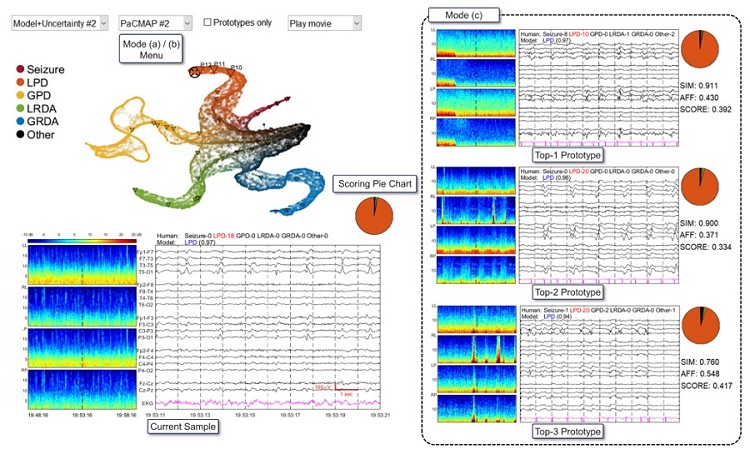
AI Doubles Medical Professionals’ Accuracy in Reading EEG Charts of ICU Patients
Electroencephalography (EEG) readings are crucial for detecting when unconscious patients may be experiencing or are at risk of seizures. EEGs involve placing small sensors on the scalp to measure the... Read moreFlexible Device Enables Sweat Gland Stimulation and Simultaneous Biosensing
Human sweat is rich in biomarkers that can be used to monitor a range of health conditions, from diabetes to genetic disorders. Many users prefer sweat sampling over blood collection because it is painless.... Read more
WHO Publishes First Global Guidelines to Reduce Bloodstream Infections from Catheter Use
Up to 70% of all inpatients require a catheter, specifically a peripherally inserted catheter (PIVC), at some point during their hospital stay. Patients who receive treatments via catheters are particularly... Read moreSurgical Techniques
view channel
Study Warns Against Dangerous Smoke Levels Produced During Endoscopic Gastrointestinal Procedures
Healthcare professionals involved in certain smoke-generating endoscopic gastrointestinal procedures, such as those using electrical current to excise polyps, may be exposed to toxin levels comparable... Read more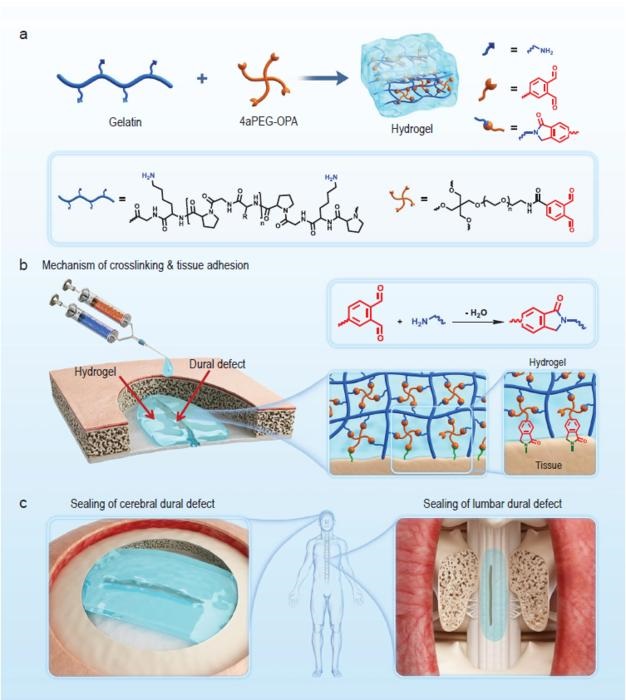
New Hydrogel Sealant Effective at Sealing Dural Defects and Preventing Postoperative Adhesion
The dura mater is a fibrous membrane of connective tissue that envelops the brain and spinal cord. In neurosurgical procedures that require access to the brain or spinal cord, opening the dura mater often... Read more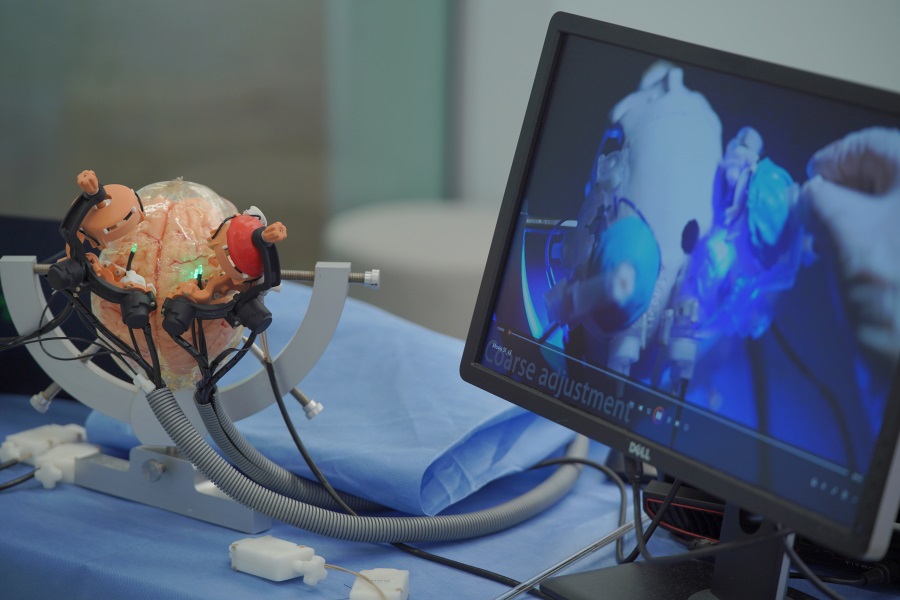
MRI-Guided Multi-Stage Robotic Positioner Enhances Stereotactic Neurosurgery Precision
Magnetic resonance imaging (MRI) offers significant benefits in neurosurgery, providing detailed 3D visualizations of neurovascular structures and tumors. Traditionally, its use has been restricted to... Read morePatient Care
view channelFirst-Of-Its-Kind Portable Germicidal Light Technology Disinfects High-Touch Clinical Surfaces in Seconds
Reducing healthcare-acquired infections (HAIs) remains a pressing issue within global healthcare systems. In the United States alone, 1.7 million patients contract HAIs annually, leading to approximately... Read more
Surgical Capacity Optimization Solution Helps Hospitals Boost OR Utilization
An innovative solution has the capability to transform surgical capacity utilization by targeting the root cause of surgical block time inefficiencies. Fujitsu Limited’s (Tokyo, Japan) Surgical Capacity... Read more
Game-Changing Innovation in Surgical Instrument Sterilization Significantly Improves OR Throughput
A groundbreaking innovation enables hospitals to significantly improve instrument processing time and throughput in operating rooms (ORs) and sterile processing departments. Turbett Surgical, Inc.... Read moreHealth IT
view channel
Machine Learning Model Improves Mortality Risk Prediction for Cardiac Surgery Patients
Machine learning algorithms have been deployed to create predictive models in various medical fields, with some demonstrating improved outcomes compared to their standard-of-care counterparts.... Read more
Strategic Collaboration to Develop and Integrate Generative AI into Healthcare
Top industry experts have underscored the immediate requirement for healthcare systems and hospitals to respond to severe cost and margin pressures. Close to half of U.S. hospitals ended 2022 in the red... Read more
AI-Enabled Operating Rooms Solution Helps Hospitals Maximize Utilization and Unlock Capacity
For healthcare organizations, optimizing operating room (OR) utilization during prime time hours is a complex challenge. Surgeons and clinics face difficulties in finding available slots for booking cases,... Read more
AI Predicts Pancreatic Cancer Three Years before Diagnosis from Patients’ Medical Records
Screening for common cancers like breast, cervix, and prostate cancer relies on relatively simple and highly effective techniques, such as mammograms, Pap smears, and blood tests. These methods have revolutionized... Read morePoint of Care
view channel
POCT for Infectious Diseases Delivers Laboratory Equivalent Pathology Results
On-site pathology tests for infectious diseases in rural and remote locations can achieve the same level of reliability and accuracy as those conducted in hospital laboratories, a recent study suggests.... Read more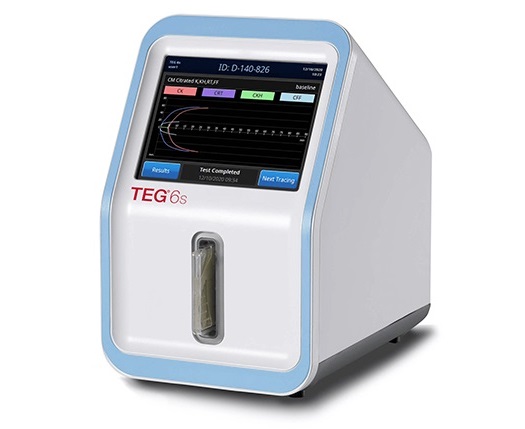
Cartridge-Based Hemostasis Analyzer System Enables Faster Coagulation Testing
Quickly assessing a patient's total hemostasis status can be critical to influencing clinical outcomes and using blood products. Haemonetics Corporation (Boston, MA, USA) has now obtained 510(k) clearance... Read more
Critical Bleeding Management System to Help Hospitals Further Standardize Viscoelastic Testing
Surgical procedures are often accompanied by significant blood loss and the subsequent high likelihood of the need for allogeneic blood transfusions. These transfusions, while critical, are linked to various... Read moreBusiness
view channel
MEDICA INNOVATION FORUM for the Healthcare Innovations of the Future
By always offering innovations and updating existing program formats, the internationally leading medical trade fair MEDICA in Düsseldorf has been successful for over half a century and always gives its... Read more













